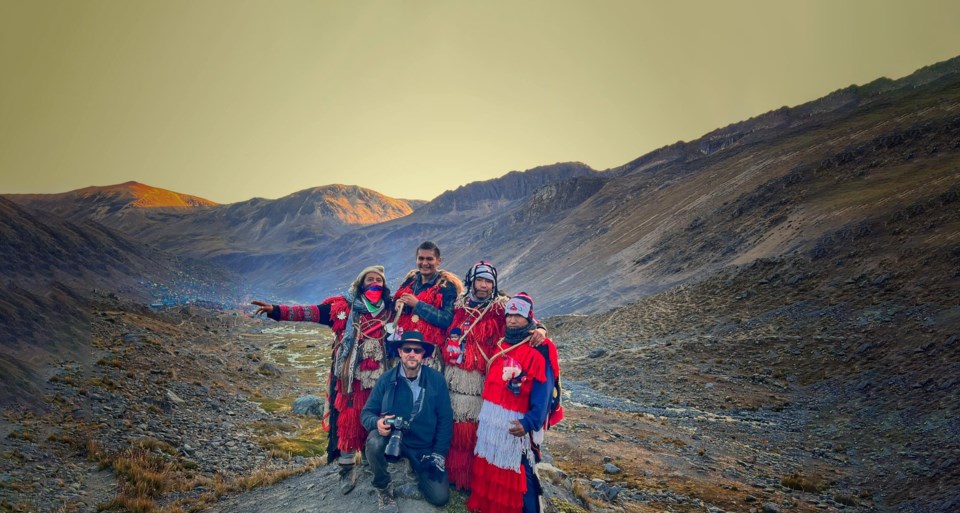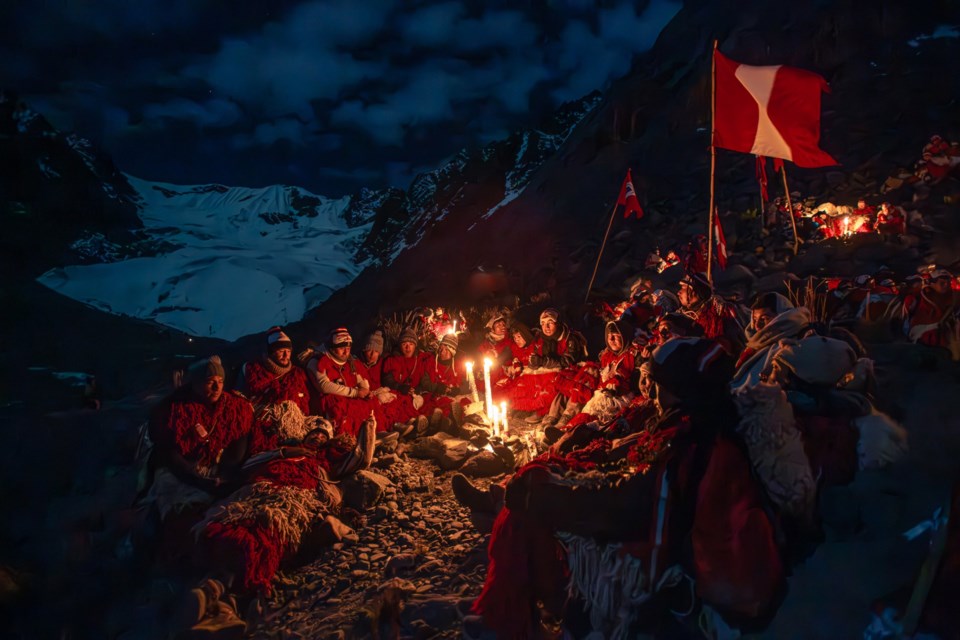Sarnia will have a rare opportunity to hear from internationally recognized photographer Michael Bednar, a Sarnia native who has spent the last two years living in the Andes Mountains of Peru. Bednar, whose work focuses on capturing the lives and struggles of Indigenous communities, will present his latest project, The Condor & The Bull, at a special event at the Polish Hall on November 16th. This presentation marks the first public unveiling of his project documenting the Indigenous Quechua people, a series that recently earned top honours from the International Photography Awards.
Bednar’s journey into the heart of Peru’s Indigenous culture began with a desire to connect with the Quechua people, whom he first encountered in 2008. His background working with First Nations communities in British Columbia inspired him to learn more about Indigenous resilience worldwide. After collaborating with the Ascenta Foundation in 2014, Bednar felt a strong pull to return to Peru, and in 2022, he made the leap to embark on a multi-year commitment to capture the Quechua people’s story.
Reflecting on the inspiration for his work, Bednar shared, “I have been a photographer for almost twenty-five years now. My work has focused on cultures, the environment, and how the intersection between the two shapes one another.” His experience includes working with Indigenous youth, bridging cultural divides, and helping young people document their unique traditions. This dedication has been the foundation of his efforts in Peru, where he’s faced significant challenges as both a storyteller and an observer.
One of Bednar’s most memorable experiences in Peru has been participating in the religious pilgrimage of Qoyllur Rit’i. “The experience of being made an honorary member of a group to participate in the pilgrimage had the greatest impact on me,” he recounted, underscoring the deep trust he’s earned in the community. But his path has not been without obstacles. From threats of violence and deportation to the physical demands of remote travel, Bednar’s commitment to his craft and the Quechua people has been unyielding.
For Sarnia audiences, Bednar hopes his work will challenge assumptions and encourage empathy. “I hope people will pause before casting judgment or making assumptions about people from other places or cultures,” he said. “Every culture and people deserves a place in this world and has something unique to offer.”
The event at the Polish Hall will also feature appetizers by celebrity chef Irene Matys and a cash bar. Proceeds from ticket sales will support Bednar’s ongoing work.
For those who want to delve deeper, we’ve included the full interview with Michael below.

Full Interview with Michael Bednar
Sarnia Journal: What inspired you to begin documenting the Quechua people and the Andes Mountains in Peru?
Michael Bednar: I have been a photographer for almost twenty-five years now. My work has focused on cultures, the environment, and how the intersection between the two shapes one another. For several years I worked with First Nations in communities throughout British Columbia, teaching them photography and digital storytelling. The project aimed to connect youth with their own unique culture. As part of that, I visited Peru in 2008 to make connections between the participants with Indigenous youth from other cultures. That was my first exposure to the culture in Peru. Then, in 2014, I returned to Peru with the Vancouver-based non-profit organization Ascenta Foundation to document the medical work they were doing in the remote community of Cotabambas in the Andes Mountains. It was during this time that I grew extremely interested in the culture of the Indigenous Quechua people. I was unable to stay then and work on the story I wanted to tell, but the seed was planted. It was a story that stayed with me, and I continued to think about it over the following years. For a variety of reasons, I finally decided in 2022 that if I was going to do it, it had to be now, and I made the leap.
Sarnia Journal: Could you share a memorable experience or encounter you've had while working on The Condor & The Bull?
Michael Bednar: There have been many experiences over the past two years that have left their mark on me. However, the experience of being made an honorary member of a group to participate in the religious pilgrimage of Qoyllur Rit’i had the greatest impact on me. I have been invited to join them once again in 2025 to go on the pilgrimage.
Sarnia Journal: What challenges have you faced while photographing in remote areas of Peru, and how have they shaped your approach to storytelling?
Michael Bednar: There have been a variety of challenges at different times over the two years. The first several months of the project were focused on the political unrest and upheaval that swept across the country. I covered the events for the international press, which was not appreciated by the Peruvian authorities. As a result, I faced threats of violence, deportation, and other intimidation tactics. Since then, learning about the issues and gaining access to the communities and people is the greatest challenge to telling this story. Building relationships and trust, so people will share their stories with me and allow me to photograph them takes time. The language barrier is always a challenge, so I need to hire translators and guides. Travel can be difficult and takes a lot of time. Environmentally, staying in very basic, often uncomfortable places and eating what you are offered just comes with the territory. This project has been physically, mentally, and emotionally demanding. It also requires tremendous self-reliance. You have to be comfortable in your own skin and be willing to take risks.
Sarnia Journal: How has documenting the struggles and culture of the Quechua people affected you personally or changed your perspective?
Michael Bednar: Many of the things I have seen and have documented I was aware of through years of work and learning about the issues Indigenous cultures are facing around the world. I don’t feel it has changed my perspective. However, it has imparted upon me the urgency of many of the issues they face, which are issues we all face in our rapidly changing modern world.
Sarnia Journal: What do you hope audiences in Sarnia take away from seeing The Condor & The Bull for the first time?
Michael Bednar: I hope people will pause before casting judgment or making assumptions about people from other places or cultures and realize they are people like you or me. Every culture and people deserves a place in this world and has something unique to offer. We are living in a time of divisiveness when empathy and understanding are greatly needed.
This article was created with support from advanced editorial tools and reviewed by our team to ensure accuracy and fairness. [Learn More]
